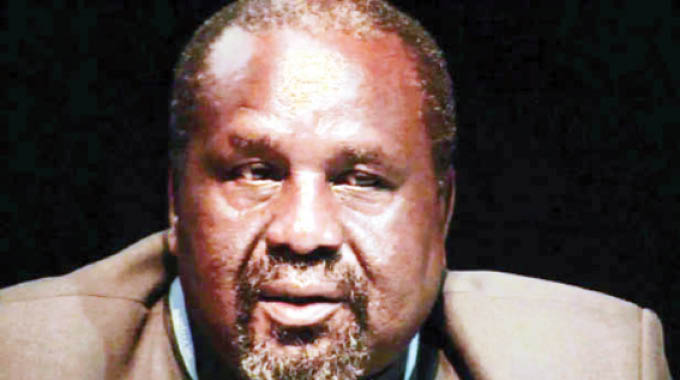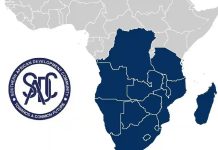THE threat of climate change and its effects across the globe is pushing developing economies to the edge given its sweeping impact on ordinary people’s livelihoods.
This calls for urgent measures towards strengthening adaptation and mitigation strategies.
Prolonged dry-spells and devastation caused by Cyclone Idai in parts of Southern Africa early this year, which cost affected economies thousands of lives and billions of dollars, are seen as severe indicators of climate change, alongside the desertification of the Sahel region and in the Horn of Africa. Many African countries are also witnessing an increase in extreme weather conditions, which have resulted in serious humanitarian challenges.
Climate change is increasingly threatening the economic base of most developing countries, especially farming, which is a source of both food and key industrial raw materials. Within Sadc alone, an estimated nine million people were considered severely food insecure in Angola, Eswatini, Zambia, Namibia, Lesotho, Malawi, Madagascar, Mozambique and Zimbabwe by October 2019. There are fears the numbers could rise to 12-million by March 2020.
More than 41-million were food-insecure in 13 of the 16 Sadc states with 25 percent of Eswatini’s rural population affected and 30 percent Lesotho rural population expected to require humanitarian assistance between October and March, according to a September update from the United Nations Office for the Co-ordination of Humanitarian Affairs. Many of the affected governments have made global appeals for food aid.
Apart from loss of lives and property, climate related disasters have an effect of reversing development gains and undermining the continent’s efforts to attain the aspirations of African Union (AU) Agenda 2063 and the United Nations (UN) 2030 Sustainable Development Goals. Efforts towards increasing intra-Africa trade and scaling up regional economic integration, which are at the heart of regional economic blocs such as the Common Market for Eastern and Southern Africa (Comesa), Southern African Development Community (Sadc) and the East African Community (Eac), also stand to be heavily affected by climate change.
Indeed, Comesa and its sister regional economic communities have embraced climate change interventions in their regional integration programmes.
Although this is clearly alluded to in Chapter 16 of the Comesa Treaty, which broadly covers cooperation on environmental management issues, these have not been fully mainstreamed in programme implementation, and have tended to lack a business case for sustainable environmental management. Private sector engagement and involvement on the matter has also been minimal so far despite the huge risk implications on industry and commerce, which are seen as the driver of modern industrialisation and increased regional trade.
Given Africa’s reliance on agriculture and wildlife-based tourism industries, among other natural resource-driven activities, pressure is mounting on both businesses and respective governments to take bold steps to address the climate crisis.
While non-state actors or development partners have been on forefront in raising environmental awareness, with the public sector recently coming on board, there has been limited involvement of the private sector, who, ironically, stand to equally suffer more effects from climate change.
Experts believe public-private collaboration on climate financing has the potential to de-risk investments on a large scale and increasing capital flows into climate-friendly business models and technologies.
“There is not enough knowledge about what constitutes climate and green finance, and options for investments in climate change related portfolios and green sectors . . . in addition there is also need to increase awareness on the benefits of private sector engagement in climate actions,” says Harsen Nyambe, head of Environment, Climate Change, Water and Land Management at the African Union Commission.
While Comesa has been rolling out capacity building engagements with key stakeholders in member states at different forums, for instance, the bloc admits there is a huge gap in terms of strengthening member states’ capacities to access, manage and deliver national and international climate finance more effectively including awareness on the benefits of private sector engagement.
“The continent’s low adaptive capacity makes it more vulnerable to the impacts of climate change. Filling this gap requires support in the areas of technology, capacity development, skills and finance,” said Dr Mclay Kanyangarara, Comesa’s Climate Change Advisor. This is a strong indicator that one of the biggest hurdles to climate mitigation and adaptation measures lies in resource mobilisation, whose formulae is not complete without full private sector participation.
According to the Palladium Group, which works with governments, businesses, and investors to solve the world’s most pressing challenges, the corporate world now has a perfect opportunity to align its efforts with the public sector around environmental sustainability by putting climate change at the core of their operations.
The business case for sustainability, including environmental sustainability and climate risk management, has never been stronger, it said.
“Solving these problems of deforestation and climate change will require huge amounts of private sector capital,” says Will Upshur, Palladium’s head of commercial innovation, “and it has distinct advantages over donor and government capital, both of which are subject to political winds.”
Such a model seeks to ensure the corporate world plays a leading role by investing in efforts towards addressing the climate change dilemma. Regional bodies like Comesa are, thus, better positioned to coordinate such efforts as they already have operational structures and have earned the goodwill of their state actors. In this regard, private sector players could effectively assist in resource mobilisation and reducing waste from their core operations as ‘quick wins’.
Similarly, the World Economic Forum (WEF) stated in its November 2019 update states that numerous business risks will emanate from climate change, in a bold departure from the past where environmental factors did not feature among top risks for doing business.
“Environmental risk continues to represent a blind spot for Africa that could hinder the economic and social progress of that region,” said WEF.
This strongly points to the need for business leaders to be worry of economic hazards related to climate change transition and invest more on mitigation efforts. Failure to do so will increase the vulnerability of African industries and ultimately weaken their competitiveness.
In Zimbabwe, the central bank has hinted on engagements with the financial services sector on a framework that will guide banks to adopt sustainable climate change or green financing principles. This is in realisation that central banks in the region are key stakeholders in mitigating negative effects of climate change. “Central banks can play a pivotal role in developing a sustainable finance map to guide local banks and financial institutions to scale up provision and access to green finance,” says Reserve Bank of Zimbabwe Deputy Governor, Dr Khuphukile Mlambo. Agribank chief executive officer, Mr Somkhosi Malaba, is also on record saying: “Green finance is very critical yet we haven’t been moving with the same pace. We need to be ready and start implementing in our own countries.”
Comesa and sister RECs should, therefore, invest more in capacitating member states to tackle some of the complexities associated with making bankable adaptation project proposals and cumbersome application processes among other requirements that limit capacity and access to financing. Financial institutions and big corporates should also collaborate to mitigate against environment risks by exploring available opportunities such as investing in agricultural practices, renewable energy, infrastructure development and research. Such efforts are in line with UN SDGs and also fulfil governments’ mandate towards the Paris Agreement on climate change signed in 2016. Comesa and its sister RECs have been taking part in these crunch discussions including the 25th Conference of Parties (COP25) to UN Framework Convention on Climate Change in Madrid, Spain, early this month. The conference ended on a stalemate as many thematic issues were not finalised due to the complexities and protracted nature of the global climate debate and would be tabled at the COP26 summit in 2020.
Facilitating strong public-private partnerships would, therefore, not only mainstream climate-friendly business models within the regional economy but would assist member states to remove trade barriers, de-risk investments through provision of grants and technical assistance as well as increase synergies with national governments and communities to ensure transition to low carbon emissions.
The combined effect would be increased climate resilience in vulnerable regions and communities, which reduces incidents of human conflict and fosters peace and security, which are vital for a robust trade integration.






